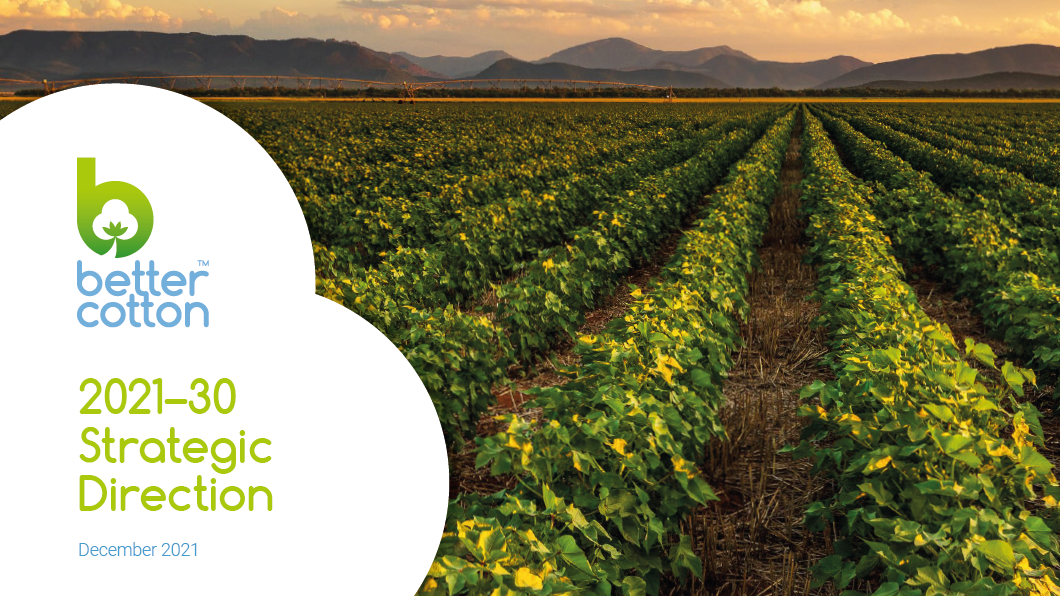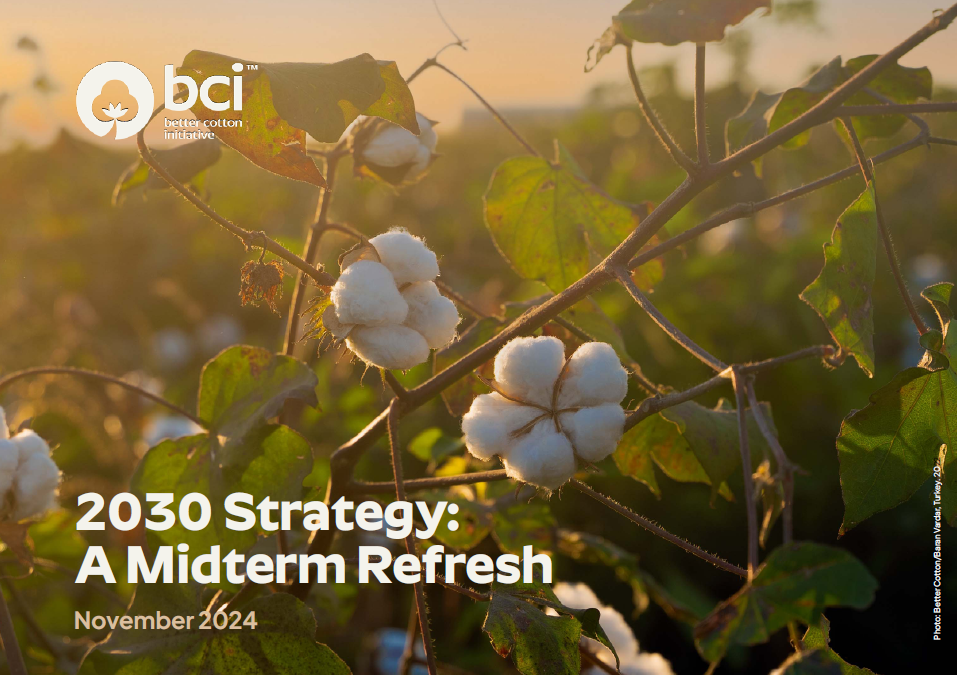This is the Better Cotton Initiative (BCI)’s agenda for change for the better. The 2030 Strategy sets the direction of our ten-year plan to make cotton better for the farmers who produce it and for all those who have a stake in the future of the sector.
Today over a fifth of the world’s cotton is produced under the BCI Standard, and 1.39 million cotton farmers have been trained in more sustainable farming practices and are licensed to grow BCI Cotton. Our vision of a sustainable world, where cotton farmers and workers know how to cope – with climate change, threats to the environment and even global pandemics – seems within reach. A new generation of cotton farming communities will be able to make a decent living, have a strong voice in the supply chain and meet growing consumer demand for more sustainable cotton.
Our Strategic Aims
How do we aim to make this vision a reality?
We will embed more sustainable farming practices and policies
The training that our field-level partners deliver is central to our innovative approach to farming. It will actively promote soil health, water stewardship, carbon capture and biodiversity. We will encourage governments, agricultural extension services and regulators to be part of the journey.
We will enhance well-being and economic development
We want cotton farming to be economically viable, especially for smallholders. Better farming practices are not just about better soil and better crops. They mean living wages, decent working conditions, access to grievance and remediation channels, gender empowerment and the end of forced labour. Whole farming communities must benefit.
We will drive global demand for sustainable cotton
We will encourage suppliers, manufacturers, retailers and brands to source BCI Cotton. We will do everything we can to give farming communities more and more market access for their in-demand crop. We will build awareness, interest and preference for BCI Cotton among consumers.
Impact Targets
The 2030 Strategy consists of five Impact Target areas to measure and report on: Climate Change Mitigation, Soil Health, Women’s Empowerment, Pesticides, and Sustainable Livelihoods. Impact Targets in each of these areas will provide metrics to ensure greater demonstrable impact and progressive, measurable change at the field level by 2030. These new commitments align with the 2030 Sustainable Development Goals and build on the agreements reached at COP26 to reach actionable climate mitigation outcomes for cotton farming communities.
To read about our Impact Targets in these five areas, click here.









































